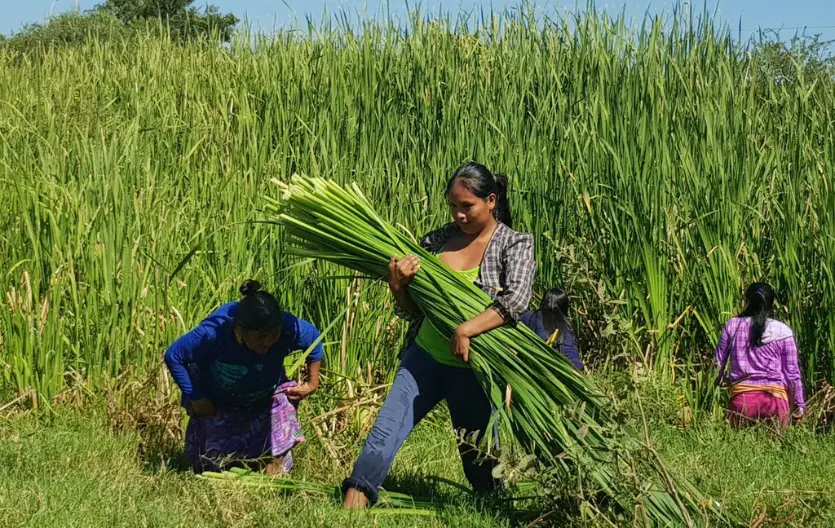We, the women of the Qom indigenous community of Santa Rosa, have long tried to protect our lands against the rapid intrusion of extractivist projects that have caused high rates of deforestation and environmental destruction in our territory, the Paraguayan Chaco.
The conflict we are facing now has to do with a supposed “sustainable development” model that the NGO Fundación Paraguaya is imposing on us. The NGO is planting industrial eucalyptus monocultures in Qom territory as part of the organization’s program to “eliminate poverty”. Ironically, they are being financially supported by none other than the Green Climate Fund (GCF).
Without the prior, free and informed consent of the Qom community, as required by the Declaration of the Rights of Indigenous Peoples, in November 2021, Fundación Paraguaya planted 20 hectares of eucalyptus trees on our land. Lines and lines of natural water suckers.
Eucalyptus trees are known for two things, first they grow fast, and second, they consume an excessive amount of water. According to the World Agroforestry Center, an average eucalyptus consumes around 85 liters of water per day and here in the Chaco we do not have much water. As they have been planted as Monoculture, they require an indiscriminate amount of fertilizers and agrochemicals. These are highly polluting and directly affect the life and fertility of our soils and the safety of the groundwater on which we depend. The wells and fruit plants that sustain our way of life are threatened.
Now the trees measure more than meter and a half. In a few years, when they are harvested, they will only benefit 40 families, not the entire community, and the land they are occupying will require a huge effort to regenerate if we want to use it again for our crops. Our organization “Organización de Mujeres Artesanas de Santa Rosa” from the Qom community has filed complaints with the environmental authorities and has held demonstrations to publicize our situation. We know that our subsistence depends on the well-being of our environment and that it is crucial to improve the resilience of our territory in the face of climate change. For this reason, we have suffered physical violence and threats.
Investing in monoculture tree plantations is a false climate solution. Instead, funds should go towards preserving ecosystems and restoring the natural water cycle by strengthening the rights of women and indigenous communities and empowering them to protect their lands by leading environmentally friendly lifestyles. In fact, numerous studies show that letting forests regenerate naturally offers 97% higher carbon sequestration benefits than establishing commercial plantations.
We, the women of the Organization of Women Artisans of Santa Rosa, call on governments to ensure that resources are diverted from monoculture eucalyptus plantations that harm our territories and redirected towards real climate solutions with gender justice. that we, the women and girls of the Qom indigenous community, are implementing.
The Organization of Artisan Women of Santa Rosa is dedicated to defending collective cultural and socio-environmental rights. They have the support of the Women of the South Fund, which is part of the Global Alliance for Green and Gender Action network. Follow the Organization of Peasant and Indigenous Women Conamuri, which works with rural women from 12 departments of Paraguay, including the Qom community of Santa Rosa. You can also find out more here:

